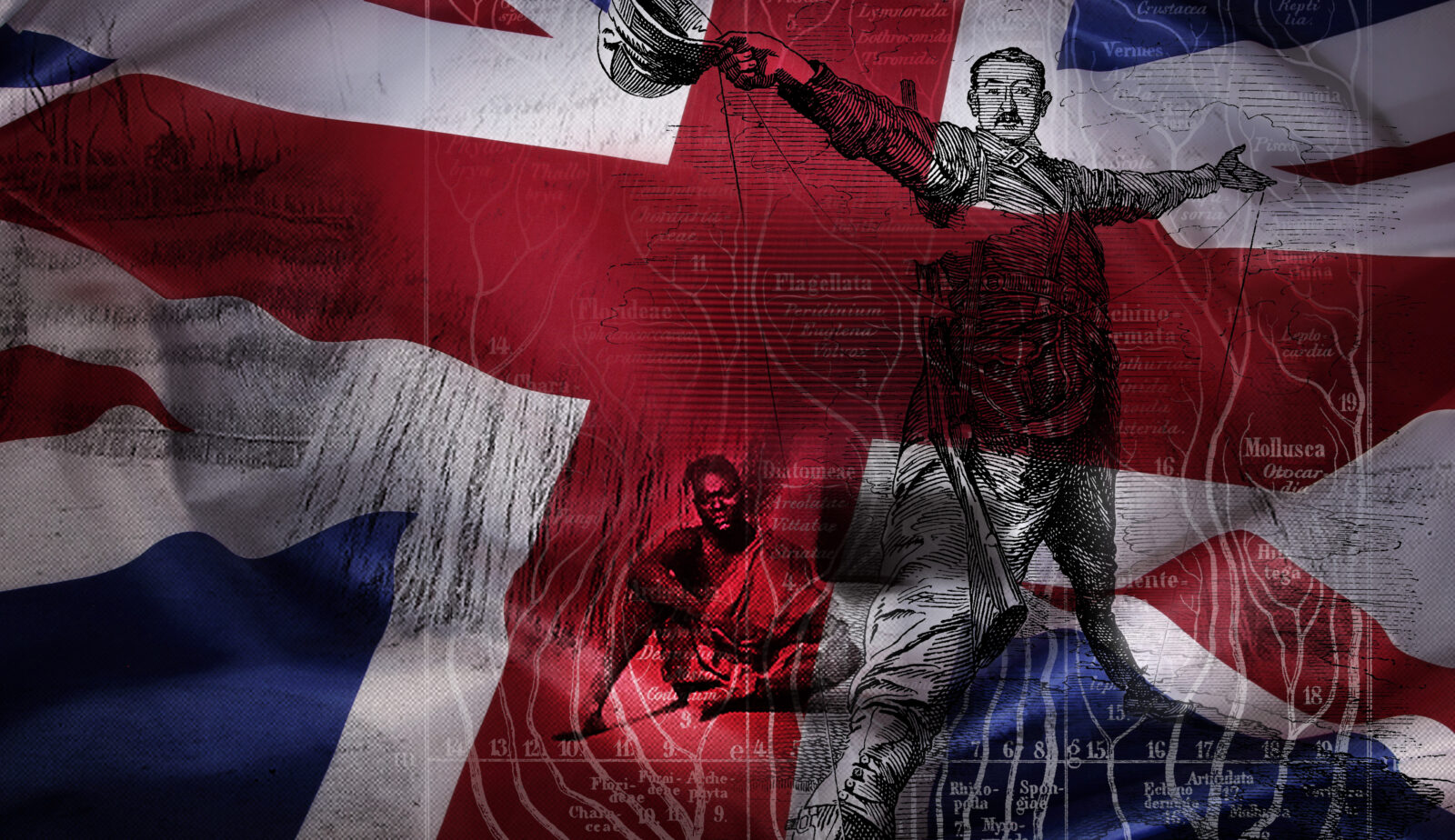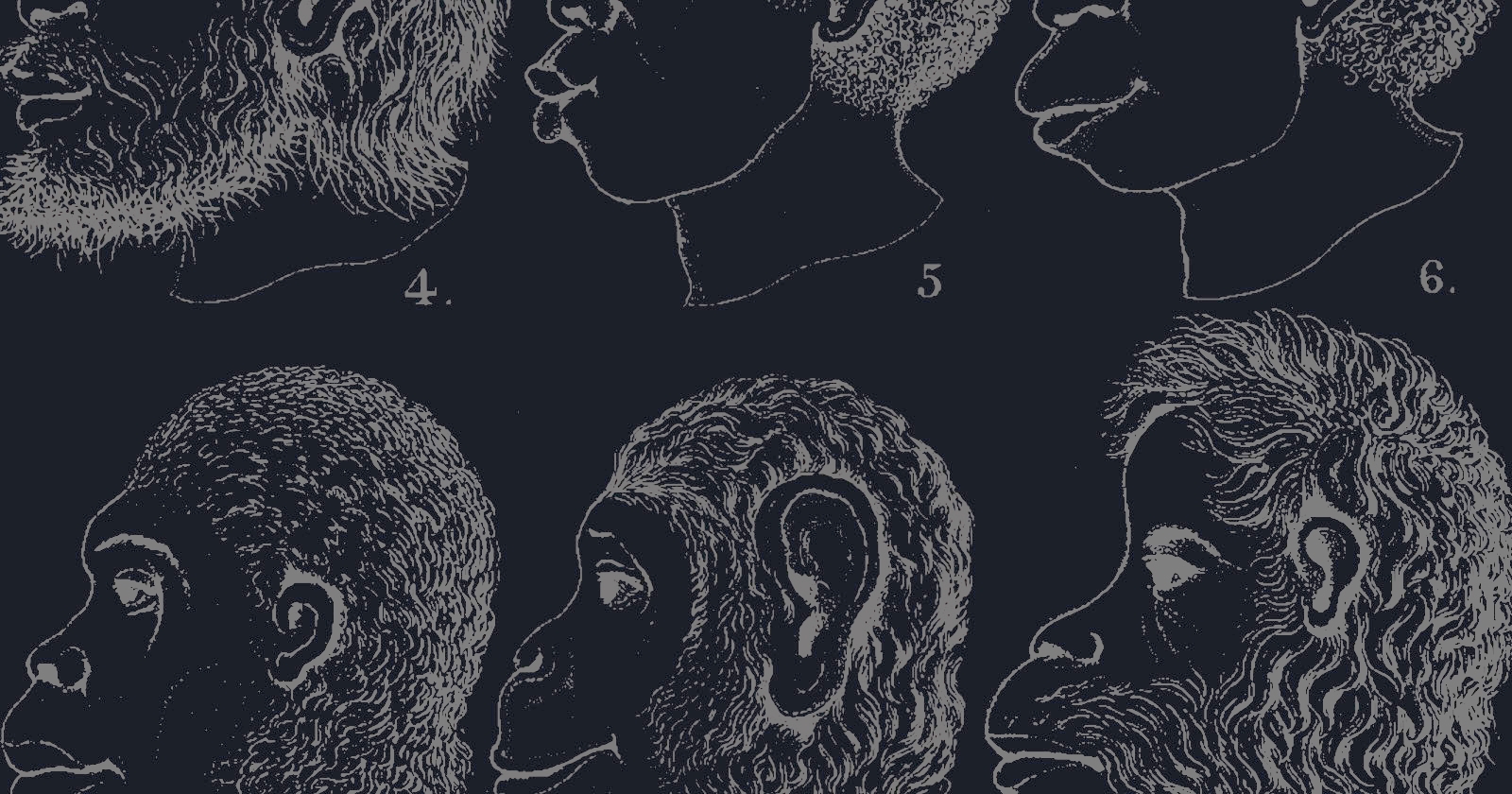


When Darwinian Racism Came to Africa, and the West
Today’s ID the Future features another reading from scholar Olufemi Oluniyi’s new book, Darwin Comes to Africa. In this excerpt we learn how Darwin himself laid much of the groundwork for social Darwinist ideas, primarily in his book The Descent of Man, and how those ideas were energetically developed in the ensuing decades by various mainstream scientists. Oluniyi further details how their work fueled pseudo-scientific racism against black Africans and other indigenous peoples outside the West. To learn more about this neglected corner of modern Western history, and for the good news that the flow of evidence has turned against Darwinism and, with it, social Darwinist principles, pick up Oluniyi’s book here.

When Darwinism Came to Africa, Horrors Ensued
On today’s ID the Future, hear a Nigerian voice-actor reading from the opening pages of Nigerian scholar Olufemi Oluniyi’s new book, Darwin Comes to Africa. In this section from the preface, Oluniyi explores the relationship of Darwinism to Social Darwinism, and some of the ways Social Darwinism fueled and justified horrific ideas and actions among European thinkers and colonizers. Oluniyi tells the story of Russian scientist Ilya Ivanovich Ivanov, who, guided by Social Darwinist thinking, “sought to produce a race of super-soldiers for Stalin’s army by impregnating French Guinea women with the sperm of a dead chimpanzee—black African women, mind you, who were presumed to be less highly evolved and thus closer to chimpanzees than were white European women.” As Oluniyi further notes, this scientist was far from a “lone gunman…. Colonial authorities approved the plan, and the Russian found support amongst both the French and American scientists.” As horrifying as this plan is, it and other horrors make sense under the false and twisted logic of social Darwinism, Oluniyi explains. Buy the eye-opening book here.

Darwinian Racism Webinar, Pt. 2
Today’s ID the Future features the second half of a recent webinar spotlighting historian Richard Weikart and his new book, Darwinian Racism: How Darwinism Influenced Hitler, Nazism, and White Nationalism. Here Weikart fields questions from the webinar audience. Along the way Weikart touches on the connection between Darwinism and scientific racism, the objection that Darwinism, properly understood, doesn’t support scientific racism (much less Nazi racism), the racism inherent in Darwin’s own writings and those of prominent early Darwinists such as Ernst Haeckel, and more recent manifestations of Darwinian-inspired scientific racism both academic and populist. This and much more is explored in Weikart’s new book, available here. And for scientific reasons to reject Darwinism along with its racists implications, jump over to Evolution News and Science Today.

Evolutionary Psychology: Checkered Past, Checkered Present
On this ID the Future host Casey Luskin interviews science journalist Denyse O’Leary about her recent essay, “Is Evolutionary Psychology a Legitimate Way to Understand Our Humanity,” which appears in the new Harvest House anthology co-edited by Luskin, The Comprehensive Guide to Science and Faith. O’Leary, a science journalist and co-author of The Spiritual Brain, offers a withering critique of evolutionary psychology and traces its roots, beginning with The Descent of Man (1871), where Charles Darwin attributed various human behaviors to natural and sexual selection. That fed into what became known as social Darwinism, which fell out of favor after World War II thanks to Hitler and the Nazis’ application of social Darwinist ideas to defend Nordic superiority and genocide. The ideas resurfaced in modified form under the banner of sociobiology, and then later still, as evolutionary psychology. This latter manifestation, O’Leary says, marks the most comprehensive attempt to explain the various facets of human behavior in evolutionary terms, but its comprehensiveness has not won it widespread acceptance. Far from it. The field is quick to offer explanations for why we do what we do, but it has left a train of blunders in its wake. So for instance, evolutionary psychologists claimed that we associate pink with little girls and blue with little boys due to the sex-based division of labor among our primitive ancestors over the course of millions of years of evolutionary development. In primitive societies the girls gathered fruit (pink when ripe), and the boys fished (and blue is associated with water). Mystery solved? But wait. In Victorian England, pink was associated with boys and blue with girls. Do we have an evolutionary explanation for that as well? Give any reasonably creative company of evolutionary psychologists an evening and a twelve-pack, and they’d probably be able to dream up a sure-fire evolutionary explanation. Evolutionary psychology, with its ability to explain everything and its opposite, convincingly explains nothing. According to O’Leary, distaste for the field stretches well beyond the company of Darwin dissenters. Most evolutionists steer clear of evolutionary psychology, and even some who probably count themselves as fully paid-up members of the Darwinian materialist guild openly criticize it. Thus it seems that if we want to effectively explain human behavior in all its messy richness, we would do well to look beyond the box of just-so stories built from Darwin’s toolkit of natural and sexual selection.

Richard Weikart on Scientific Racism and the War on Humanity
Today’s ID the Future again spotlights The Comprehensive Guide to Science and Faith. Historian Richard Weikart and host Casey Luskin discuss Weikart’s contribution to the new anthology, his essay “How Evil Has Been Done in the Name of Science.” As Weikart explains, over the past century and a half, science has been misused to fuel racist policies and undermine human rights. Darwinian ideas helped lay the groundwork for Nazi ideology in Germany. And we shouldn’t imagine the problem was restricted to Nazi Germany. Scientific racism also reared its head in the United States, including in the long-running and infamous Tuskegee syphilis experiment. More broadly, a marriage of scientism and evolutionary thinking continues to undermine the idea of inherent human worth and dignity, Weikart notes, even among thinkers who likely would reject scientific racism.

Jay Richards Dismantles Carl Sagan’s Passive Theist
On today’s ID the Future, philosopher Jay Richards and host Eric Anderson wrap up their conversation about a video where Carl Sagan plumps for atheism. At one point Sagan suggests that if we give up on the belief in God, then we realize that we’re on our own and instead of waiting around for God to save us, we can roll up our sleeves and save ourselves and our planet. Richards notes that Sagan’s argument involves a strawman view of the Judeo-Christian worldview, which is miles apart from the idea of sitting around doing nothing while waiting for God to save us. As Richards and Anderson discuss, it’s no coincidence that the Christian West invented universities, hospitals, and science. What about hypocritical Christians and relatively virtuous atheists? Richards and Anderson also tackle that one. Tune in to hear the rest, and check out Parts 1 and 2 here and here.

What Darwinism Fails to Explain about Business Enterprise
On today’s ID the Future, host Jay Richards talks with Eric Holloway about his recent Mind Matters article, “Can Darwinian Theory Explain the Rise and Fall of Businesses?” Why would anyone think Darwinian theory could explain business ups and downs? Holloway explains, and also notes that there’s an entire sub-discipline, organizational ecology, dedicated to studying business from a Darwinian framework. Richards, who has published on Darwinism, design, economics, and entrepreneurship himself, also weighs in. Darwinism sees business as survival of the fittest, with natural selection playing an obvious role, but where do the businesses and the innovations come from in the first place? Here is where Darwinism really founders as a tool for understanding business and entrepreneurship, says Holloway. It’s a mistake shared by Communism and to disastrous results. If we’re to look for a framework that can make sense of creativity and innovation in business, we need to look to a very different framework, he and Richards argue. Here they draw on the perspective of tech entrepreneur Peter Thiel, author with Blake Masters of Zero to One.

Richard Weikart Reviews New Book on Social Darwinism
In today’s ID the Future historian Richard Weikart (Cal State Stanislaus) dissects a new Cambridge University Press book on social Darwinism by Jeffrey O’Connell and Michael Ruse. Weikart, author of Hitler’s Ethic, From Darwin to Hitler, Hitler’s Religion, and The Death of Humanity,* says that a major shortcoming of the new book is the authors’ attempt to put as much distance as possible between Darwin and eugenics thinking, and between Darwin and Hitler. The new book paints Darwin follower Herbert Spencer as the eugenics-championing bad guy and posits that Darwin and Darwinism had little or no influence on Hitler’s warped master race ethic. Weikart patiently highlights some key evidence to the contrary, statements front and center in Hitler’s writing. Did Darwin cause Hitler? No. Would Darwin have approved of Hitler? Almost certainly not. But according to Weikart, Darwin’s own racist and pro-eugenics thinking, combined with some implications of his theory that he himself explicitly surfaced, manifestly did lay the groundwork for Hitler’s diabolical outlook on “the master race,” “the struggle for life,” war, and eugenics. *As an Amazon Associate, Discovery earns from qualifying purchases.

New Douglas Axe Intelligent Design Course: A Sneak Peek
Today’s ID the Future offers a 20-minute sneak peek at a new online course: Douglas Axe Investigates Molecular Biology and Intelligent Design. In this podcast excerpt from the course, Dr. Axe explains why Darwinism’s idea of evolution through a series of small stepping stone mutations meets several serious problems, why the need for cleverness is inescapable for creating clever things, and how his published work in the Journal of Molecular Biology shows that the Darwinian mechanism is helpless to construct new functional protein folds, never mind whole new organisms. In the full course, he investigates proteins and how they work, the genetic code, gene recruitment, population genetics, natural selection, and much more. Along the way, he explains why natural selection cannot explain the arrival of the fittest; what Twitter can teach us about evolution; and what paper airplanes have to do with Darwin. Find the complete video course here. And through April 30, 2021, you can get 30% off by using the discount code podcastspecial.